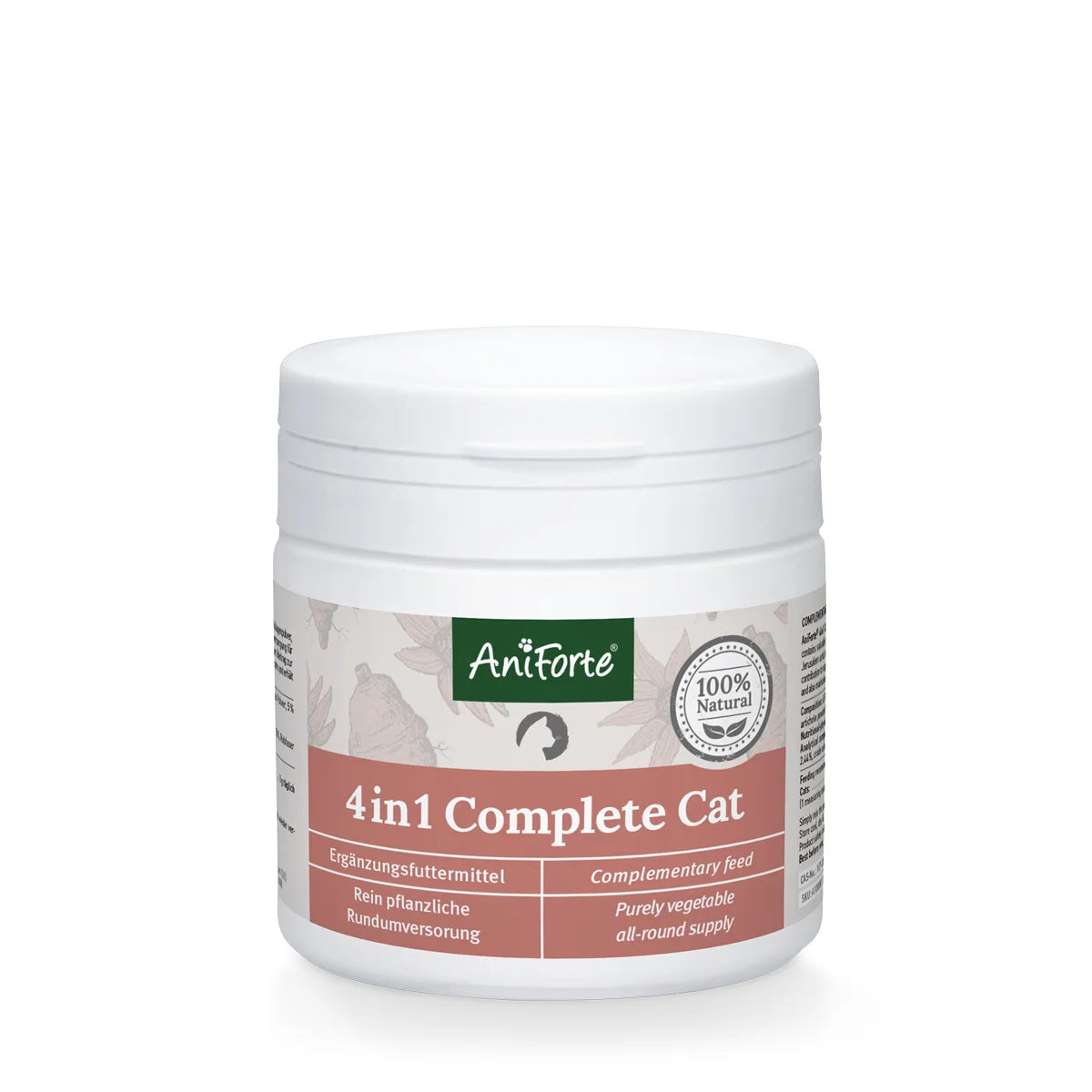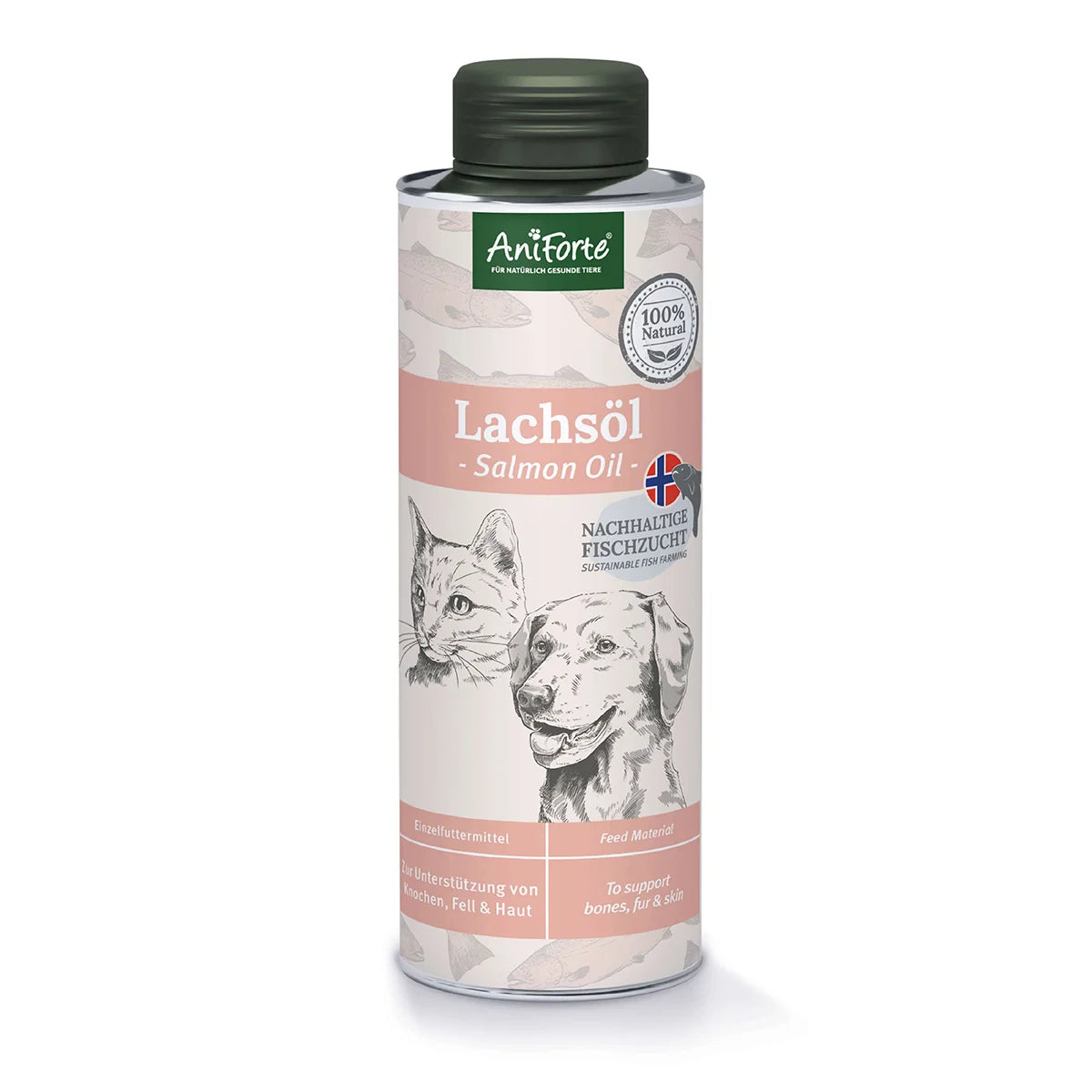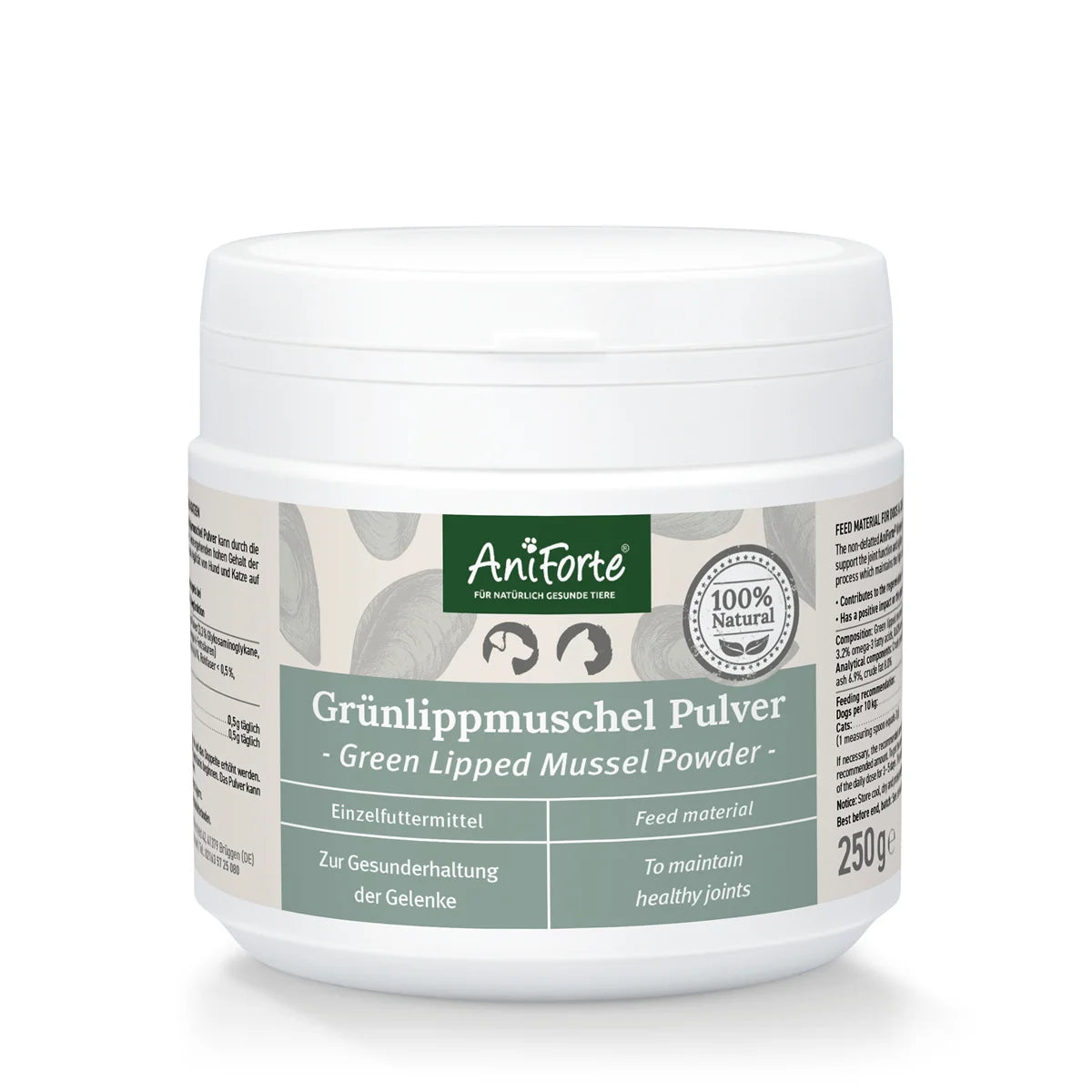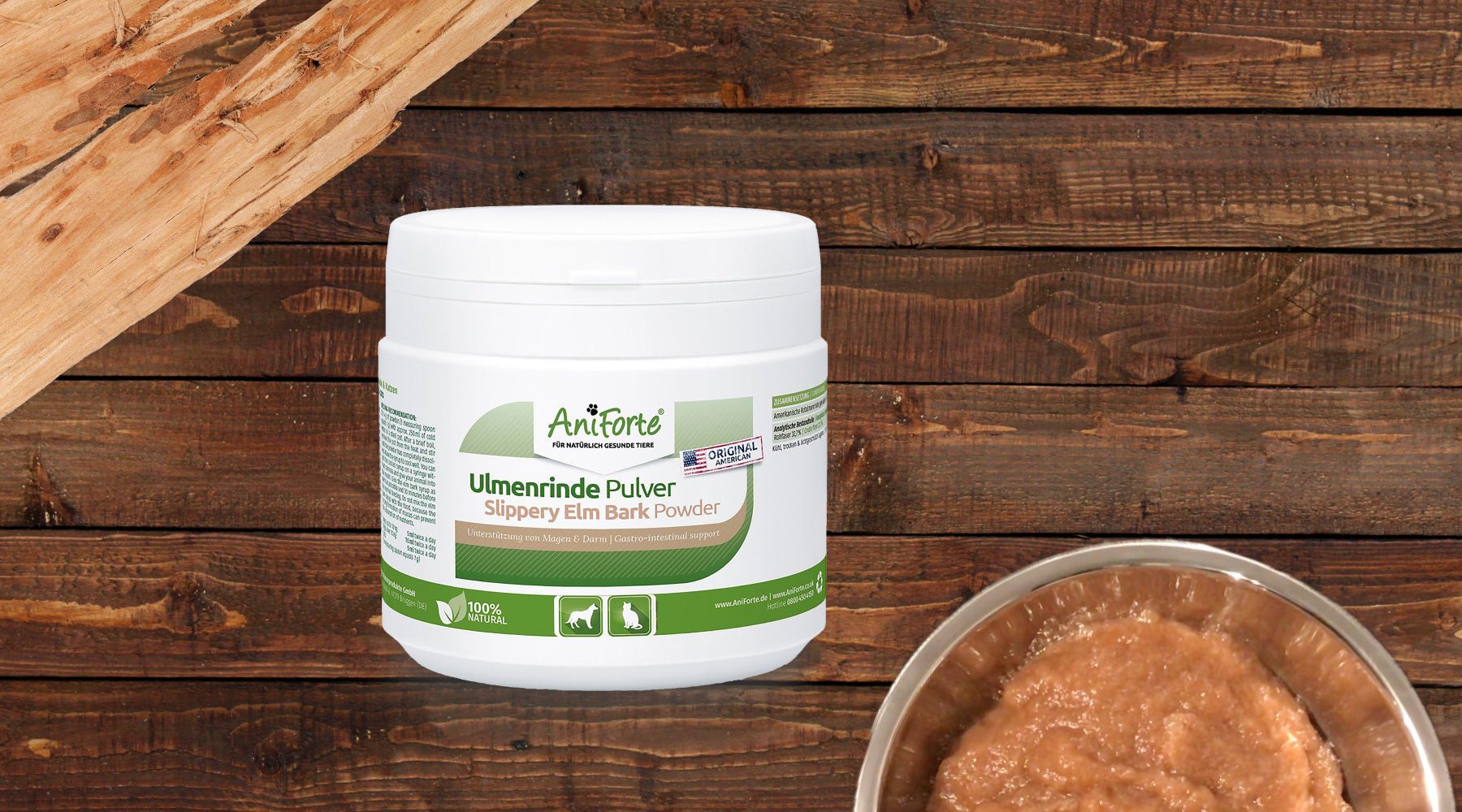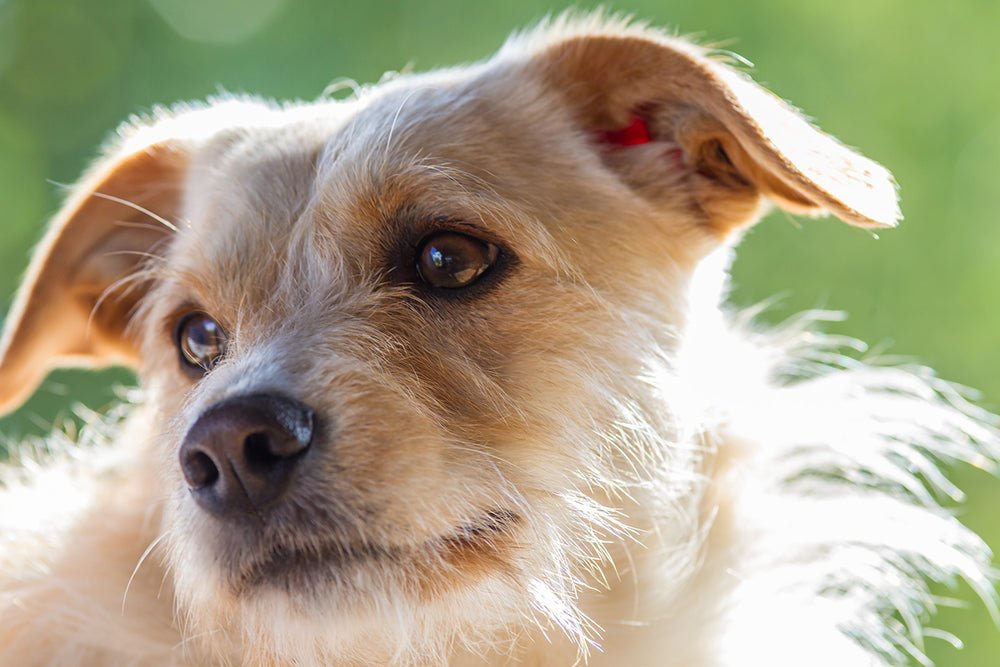
Does your dog have a cold or is coughing and you don't know what to do? Find out here how a cold manifests in dogs and how you can treat the infection naturally!
Your dog is coughing and sniffling? Recognising a cold in a dog
Upper respiratory infections are just as common in dogs as they are in humans. Kennel cough in dogs is one of the best-known bacterial diseases in our furry friends. But our dogs can also get infected with a dog cold, a cold or even a dog flu. In contrast to kennel cough, which is caused by a combination of viruses and bacteria, flu infections are only triggered by viruses.
However, not every sneeze indicates a cold. The typical symptoms when your dog has a cold are similar to those in humans:
- Coughing
- Watery eyes
- Nasal discharge
- Possibly increased temperature / fever
- Swollen tonsils
- Loss of appetite
- Fatigue
These symptoms do not have to all occur at the same time.
Treating canine cold and flu properly
If you suspect that your dog has a cold or even a flu-like infection, first measure his temperature and clarify whether he has a fever. The normal temperature for dogs is between 37.5 and 39 degrees. If your furry friend has a fever, you should definitely call the vet.
Otherwise, make sure to take care of your little friend and give him plenty of rest. While walking in the fresh air is good for recovery, don't overdo it. It is better to keep the walk a little shorter and avoid extensive jogging tours until your furry friend is completely healthy. Otherwise, the overexertion can have a detrimental effect on the dog's cold and will only make him sicker.
In addition, always keep an eye on him drinking enough fluids, especially if the dog is coughing. You can give him homemade sage or mint tea to drink; sweetened with honey, the tea has an antibacterial effect. Sage dissolves the mucus in the airways and has a gentle effect on the irritated dog's throat. Peppermint is known for its effects on the respiratory tract and also relaxes the gastrointestinal tract.
Other natural remedies such as rockrose herb, propolis for dogs or colostrum strengthen the dog's defenses and can also be given all year round to prevent colds. While propolis, the popular natural bee product, is considered nature's antibiotic and counteracts an immune deficiency in dogs, rockrose herb powder promotes the natural metabolic processes and is a well-tried remedy from natural medicine.
Colostrum is obtained from the surplus first milk of the cow and contains the important immunoglobulin G (antibodies), which also strengthen the immune system of newborn calves.
In addition, you can support your dog’s health with light foods. Fresh chicken broth with chicken, boiled potatoes and carrots work wonders. Avoid using spices, however, as they can irritate the stomach lining.
Prevent colds and dog flu naturally
To prevent your dog from catching a cold, you should always rub him dry after a walk in the rain or snow and ideally, if your furry friend allows it, blow-dry him with the hairdryer on low-level setting. It is best to bathe your dog as infrequently as possible during the cold season.
Try to prevent your furry friend from jumping into cold water. Your dog can get hypothermic and the change between warm indoor and cold outdoor air also challenges the dog's immune system.
Another factor that promotes a cold in dogs and is practiced by many dog owners out of ignorance: the dog bed is located directly on a continuously running heater. Your dog will heat up and its mucous membranes will dry out. This way, the pathogens have fewer obstacles and get into the dog's organism more easily and quickly. Don’t place your dog’s bed next to the heater and avoid drafts.
In order to strengthen the dog's immune system and prevent a cold, we recommend adapting your dog’s diet with important supplements. Rose hip powder for dogs, spirulina or barley grass are rarely found in conventional dog food, but can have a substantial effect on the health and immune defenses. They contain important vitamins, minerals and trace elements that are usually only found in synthetic form in conventional dog food.
However, we now know that vitamins from fruit and vegetables have a significantly higher bioavailability and the organism can process them better. In addition, natural feed supplements are usually free of side effects, unlike many synthetic supplements.
Dog groups at increased risk for a cold
There are groups among our dogs that are more prone to catching a cold. These include senior dogs, chronically ill dogs, dogs with previous illnesses, puppies, and of course dogs with a weak immune system.
While the immune system of old dogs runs low and many other metabolic processes in the body are slowed down, the defenses of young dogs, especially puppies, must first be built up. Hence, these two groups are much more susceptible to infection with viruses or bacteria.
Special attention should also be paid to chronically ill dogs, dogs with previous illnesses or immunocompromised dogs. These risk groups are also very susceptible to parasites such as worms, mites and giardia and require additional immune system strengthening.
Conclusion
A cold in dogs is not as rare as you might think. With a weak immune system, bacteria and visues have an easy job and can trigger cold symptoms in our dogs. If you haven’t strengthened your dog’s immune system preventatively, do it as soon as he starts coughing or displaying other symptoms of a cold.
The immune system can be naturally strengthened in dogs as well as humans: with food supplements that add an extra portion of vitamins and minerals to the daily menu, regular walks, even on cold and rainy days, and the appropriate precautions.

